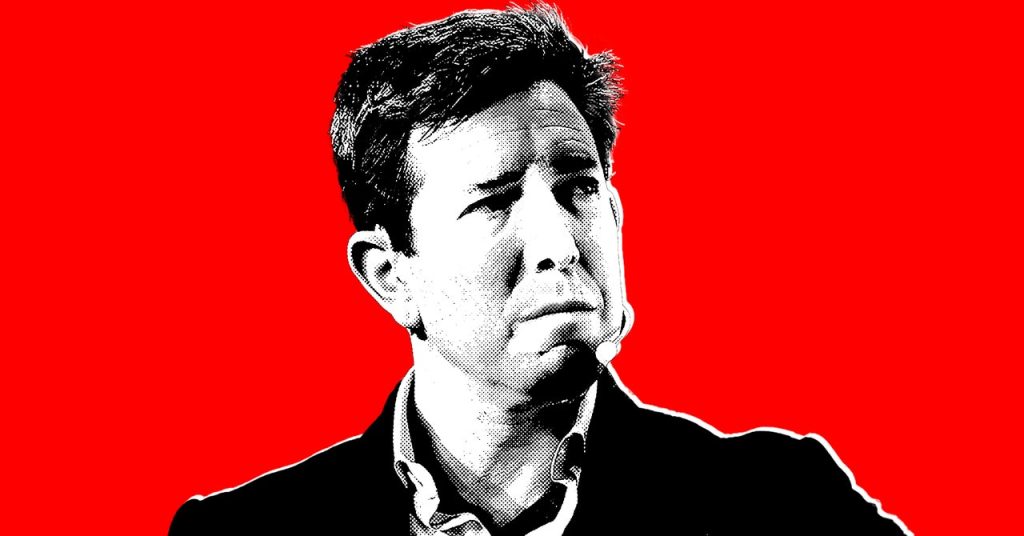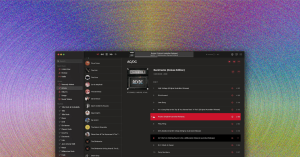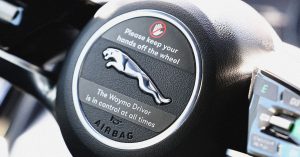Would You Vote From Your Phone?

Sep 26, 2024 7:00 AM
Would You Vote From Your Phone?
If you buy something using links in our stories, we may earn a commission. This helps support our journalism. Learn more. Please also consider subscribing to WIRED
Bradley Tusk really wants people to be able to vote on their phones. For the past few years, Tusk, a venture capitalist, political strategist, and philanthropist, has been building new software to revolutionize the way people vote in the United States. In his new book, Vote With Your Phone: Why Mobile Voting Is Our Final Shot at Saving Democracy, Tusk argues that mobile voting could completely change elections.
Back in 2018, Tusk bankrolled an effort allowing West Virginians serving overseas to cast their midterm ballots through a smartphone app. It was the first time US citizens ever voted online in a federal election. After the West Virginia pilot program, Tusk ran a handful of tests in different states; they went well, and he ended up developing his own open-source software to make mobile voting available to everyone in the US. Mobile voting has yet to be deployed outside of tests, but it would be like a virtual absentee ballot that voters could access via an app on their phones.
Tusk had spent years in the public sector serving as the deputy governor of Illinois and former campaign manager for NYC mayor Mike Bloomberg. It’s why he’s so interested in increasing voter turnout. And while there may never be an app for the presidential election, Tusk says his tech could really impact down-ballot races. But the hard part is selling people on it, especially legislators. That’s why he wrote the book we’re chatting about today.
It’snot your average politics newsletter. Makena Kelly and the WIRED Politics team help you make sense of how the internet is shaping our political reality.
- 🗞️ Read previous newslettershere.
- 🎧 Listen to theWIRED Politics Lab podcast.
This interview has been edited for length and clarity.
Makena: Can you tell me what the user experience for the mobile voting app would look like?
Bradley: Sure, it’s pretty simple. Where are you currently?
Makena: New York City.
Bradley: So [once the app launches] you would go to the New York City Board of Elections app on your phone. The first thing they would determine would be whether you were registered to vote in NYC. You would establish that, and the next question would be if you are who you say you are. To do that, the first thing is multifactor authentication. That’s just like Google or Amazon or whatever you’re getting a code sent to your phone and punching it in. Those are determined locally, but the app is built for biometric screening (facial recognition scan) which is what we’ve used for the military so far. When that’s done, the ballot appears on your screen.
You complete your ballot. You make sure it’s what you want and then when you hit submit, two things happen: The ballot itself is encrypted, and you get a tracking number, just like for a FedEx package. And then the ballot goes back to the board of elections, and they take it offline, that’s the air gapping, and they don’t decrypt it until it’s offline. Then, when they decrypt it, they print out a paper copy, and they mix it in with all the other ballots, mailed in and in person. You can follow the progress of your vote through the tracking numbers, so you know when it was submitted, received, decrypted, tabulated, all of that. It’s meant to be very, very easy and intuitive on the front end, but very sophisticated, secure on the back end.
Makena: There’s some off-the-shelf mobile voting software on the market already, but you built your own. How’s your app different from what’s already out there?
Bradley: Four years ago, we put together a team of different companies with different areas of expertise and have been building this system. It is end-to-end encrypted and end-to-end verified. It is air gapped, and it has multifactor authentication and biometric screening. Most importantly, it’s open source. I estimate we have eight to 10 months of internal work left to do. Then we’re going to submit it to Defcon and to NIST and get all their feedback. Once we’re happy with it, we’ll put it up, and it will be open source and free. At that point, any government can either use the code directly and adapt it to their own needs for their jurisdiction, or they can have a vendor do it for them.
Then phase three kicks in, which is why I wrote the book. As hard as the tech part has been, the even harder part is passing legislation everywhere that actually makes local voting available legally.
Makena: Regardless of how secure voting may be at any location, former president Donald Trump has normalized questioning the integrity of our elections. Could mobile voting make things worse?
Bradley: Does voting fraud actually exist? The answer is no.
It’s a Trump-manufactured myth because he can’t accept the notion of losing. But let’s accept that even if it’s not a real thing, it exists because he says it does. He’s going to raise that about every form of voting, whether it’s in person, mail in, or early or anything else if he thinks it might be in his favor.
I’m not proposing that we get rid of any current form of voting, and I would argue that what we have built is exponentially more secure than any other forms of voting. I’m just saying let’s make this an additional option. Some people will use it, and some may not. My daughter who just turned 18 will use it; my dad, who’s turning 80, probably would not. That’s OK.
The Chatroom
Would you ever vote via your phone or an app? What do you think this could do for elections?
Send your thoughts to [email protected] to let me know!
And from the mailbox: Responding to last week’s Chat Room question, Paul wrote to me remarking how “astonishing” it was that Trump’s own supporters don’t find his rush to start new businesses “sketchy.” My thoughts? We still don’t have many details on Trump’s crypto business, but I’d bet the whole endeavor has less to do with making money and more to do with winning over votes from the crypto base. Which I guess is a real base, now that Harris and Trump have both appealed to it this election cycle!
WIRED Reads
- Teens Say Trump’s Former Personal Aide and Project 2025 Higher-Up Made Them Uncomfortable in Chats: Two women tell WIRED that when they were 18-year-old college freshmen, John McEntee, a former Trump administration official and cofounder of a Peter Thiel–backed dating app, behaved in ways they considered inappropriate in online conversations.
- Trae Stephens Has Built AI Weapons and Worked for Donald Trump. As He Sees It, Jesus Would Approve: Stevy Levy profiles Trae Stephens, Anduril cofounder and Founder Fund partner, asking about defense contracts and Christianity.
- X’s First Transparency Report Since Elon Musk’s Takeover Is Finally Here
- Elon Musk’s X released its first transparency report: Details include the fact that the company received more than 67 million reports and took action on over 2,000 accounts.
Want more?Subscribe nowfor unlimited access to WIRED.
What Else We’re Reading
🔗 Behind Kamala Harris’s Rise: Silicon Valley’s Wealthiest Woman: Research done on behalf of Laurene Powell Jobs (a close friend to Kamala Harris) was instrumental in turning Silicon Valley megadonors against President Joe Biden’s reelection. (The New York Times)
🔗 How Google Made the Ad Tech Industry Revolve Around Itself: Google’s ad tech antitrust trial started earlier this month and prosecutors have presented evidence alleging that the company manipulated ad auctions and favored its own products over those of its competitors. (The Verge)
🔗 Two Suspects Charged in $230 Million Cryptocurrency Theft: Two crypto fraudsters were arrested on theft charges alleging that the pair duped people out of more than $230 million in cryptocurrency … and you can see how they spent it all over TikTok. (The Block)
The Download
We took a quick break for the pod this week, but catch up on all our recent episodes here!
And for a very non-political recommendation: Watch Uzumaki on Max when it comes out Sunday September 29. I’ve been waiting years for this show, and I just finished rereading the manga ahead of its release. If you watch it, let me know what you think!🌀🐌🌀
That’s it for today—thanks again for subscribing. You can get in touch with me via email, Instagram, X, and Signal at makenakelly.32.
Source: https://www.wired.com



